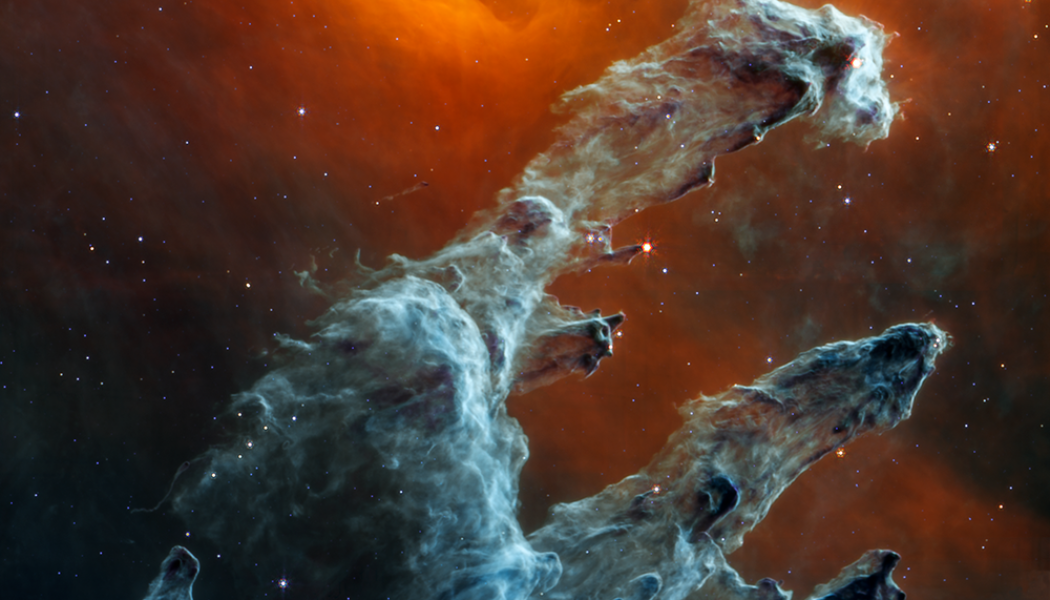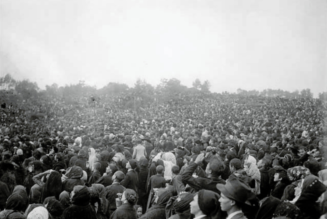
What came first: Creation, or God’s covenants with the People of Israel and the New Israel, the Church?
The question may seem odd, even silly. Chronologically, it’s obvious that the divine act of creation preceded the divine acts of covenant-making: no creation, no “People” with whom God could enter a covenant relationship. But our sense of time is not God’s. For as St. Thomas Aquinas taught, all that we know as “time” is an eternal present to God.
In Jesus of Nazareth: Holy Week, Pope Benedict XVI explains that God’s covenant relationship with his chosen people in both the Old and New Testaments is not an add-on, a divine afterthought — or, as it’s more often understood, a fix for something that had gone wrong. Rather, Benedict writes, God’s covenantal bond with his people — the Jewish people and the people of the Church — is the very reason why God “created” in the first place:
“According to rabbinic theology, the idea of the covenant — the idea of establishing a holy people to be an interlocutor for God in union with him — is prior to the idea of the creation of the world and supplies its inner motive. The cosmos was created, not that there be manifold things in heaven and earth, but that there be space for the ‘covenant,’ for the loving ‘yes’ between God and his human respondent.”
Throughout the Lenten itinerary of conversion we have lived for six weeks, the Church has asked us to reflect on God’s thirst for us. Thus, the paradigmatic Lenten gospel reading of Jesus and the woman at the well on the Third Sunday of Lent points to prayer as a “gift of God” (John 4:10): Prayer is our divinely-empowered response to God’s burning desire for our holiness. Other paradigmatic Lenten Sunday gospels strike a similar note: The cure of the man born blind (who is empowered to see Jesus as the Light of the World [John 9, 5, 38]) and the raising of Lazarus from the dead (which follows Martha’s act of faith in John 11:27). God creates or “speaks” the world into being through his “Word” (John 1:3) and redeems the world through the Word incarnate (John 1:14) to share the divine holiness. God yearns, God “thirsts,” for the holiness of the human creatures he has created, so that he might be in covenant relationship with them.
The Redemption wrought in Christ is not, therefore, some sort of addendum to Creation. The paschal mystery of Christ’s passion, death, resurrection and ascension is the axial point of the entire drama of Creation: the decisive, definitive turning point that reveals why there is “Creation” at all. Thus, the answer that Christian faith, which is Easter faith, gives to a question philosophy has pondered for millennia — Why is there something rather than nothing? — is, in a word, holiness. The Thrice-Holy God created so that the holiness shared among Father, Son and Holy Spirit might be shared ad extra: in a world brought into being to experience the eternal giving-and-receiving of love that is God’s inner-trinitarian life.
Like many others, I have been mesmerized by the extraordinarily beautiful pictures of the cosmos made available by the Hubble Space Telescope and the James Webb Space Telescope; I recently bought a print reproducing a small portion of what astronomers know as Messier 16, the “Eagle Nebula” (which the more lyrically inclined call the “Pillars of Creation”). Some might consider this vast factory of new stars, 5,700 light-years away, as a benign accident rather than what biblical religion calls a “creation.” Those who think that way tend to think of human beings the same way: We’re accidents produced by billions of years by fortuitous cosmic biochemistry.
– Advertisement –
Easter faith invites us to think differently — and more deeply.
Easter faith and the optic on reality it creates suggests that the burden of proof lies with those who imagine that everything from the Eagle Nebula to the mysterious workings of human cognition and human altruism is just accidental.
Easter faith — the faith that the Incarnate Word overcame death and was raised to a new and superabundant form of life — confesses we live in a cosmos that is purposeful because it is Christocentric: “In him all things were created….and in him all things hold together” (Colossians 1:16-17).
Easter faith summons us to think of ourselves as creatures capable of eternal life, for that is what Christ promised to those who embrace his cause (John 3:15, 17:3). And in friendship with him, the Risen One, we can experience that life, that holiness, here and now.
George Weigel is an independent columnist whose weekly column is syndicated by the Archdiocese of Denver. The opinions and viewpoints expressed by Mr. Weigel therein are his alone and do not necessarily reflect those of the Archdiocese of Denver or the bishops of Denver.









